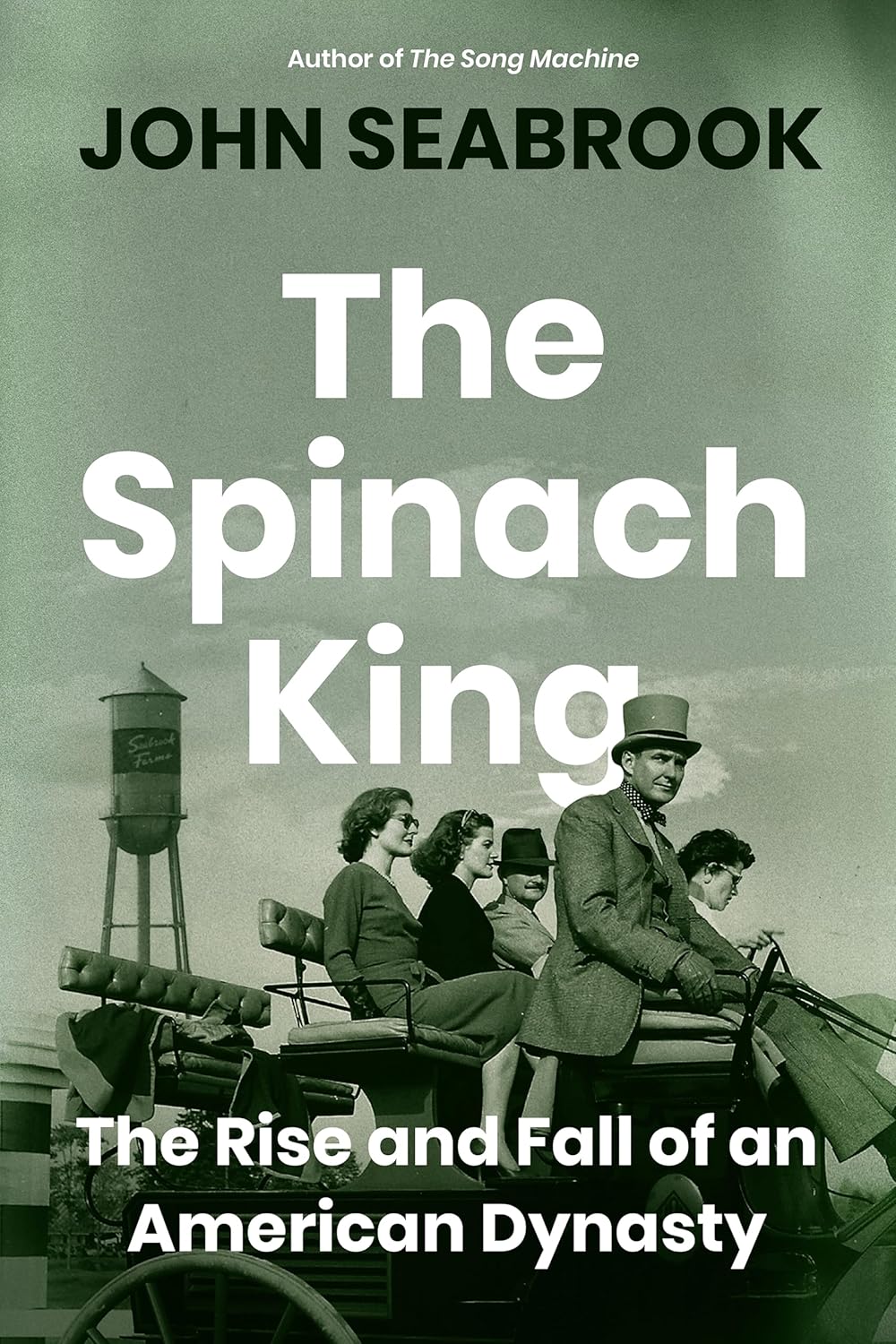The Seabrook Farms brand stood for family, freshness, and domestic modernity. Its advertising promised an end to drudgery through food engineering. As a 1959 Seabrook print ad blared “Food Miracle Frees Wife…Delights Husband!” Seabrook Farms Frozen Creamed Spinach, sold in the boil-in-the-bag Mylar Miracle-Pack, became the brand’s signature product, known and sought after up and down the East Coast. Seabrook’s cutting-edge packaging materials lent a space-age feel to its wares. In Stanley Kubrick’s 1968 film 2001: A Space Odyssey, Floyd, one of the astronauts, is briefly glimpsed sucking from a meal of Seabrook Farms Liquipacks—a liquified carrot, fish, and leafy vegetable—while transiting to the moon.
Charles Franklin Seabrook, my grandfather, was the principal dreamer, main promoter, political fixer, master builder, and autocratic ruler of this industrial farming empire—and ultimately its destroyer. The original vegetable factory was built on land his father, Arthur, purchased in 1893 and called Poplar Brook Farm. Arthur and Charlie, who started the Seabrook & Son partnership in 1905, were the first farmers in the region to use overhead irrigation. The processing plant was modeled on Henry Ford’s Highland Park automobile factory, which opened in 1910; Seabrook management even installed a time clock out in the fields, where farm hands punched in and out of work. Instead of Model T’s, which Ford introduced in 1908, the Seabrooks’ vegetable factory turned out fresh, canned, and eventually, frozen vegetables on a massive scale.
Henry Ford, nineteen years older than my grandfather, was Charlie’s inspiration. Both grew up on farms and looked to industry to save them from the drudgery and monotony of farm work. Both industrialized what had previously been cottage industries—in Ford’s case, the artisanal carriage trade; in Seabrook’s, market gardening. Both men enjoyed paternalistic relationships with their workers but had difficult and ultimately tragic relationships with their sons.
Although his passport gave “Farmer” as his profession, C. F. Seabrook saw himself as a builder. He hoped to emulate figures like Henry Kaiser, who parlayed a paving business into a shipbuilding empire, and Warren Bechtel, a Kansas farm boy who founded the Bechtel Corporation, which became the world’s largest home construction company. The great-grandson of the owner, Brendan Bechtel, now runs the company, which is still owned by the family. C. F. had something like that in mind for his own family. Things didn’t quite work out that way.
